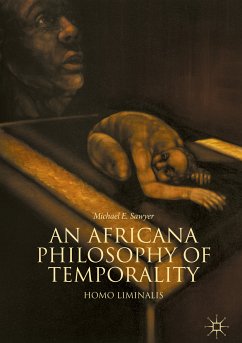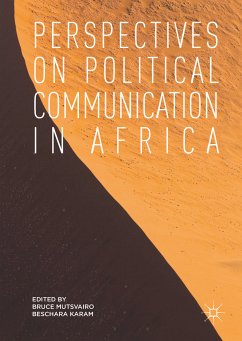
Cultural Policy and Cultural Industries in Africa (eBook, PDF)
From Culture as a Commodity to Culture as Praxis
Versandkostenfrei!
Sofort per Download lieferbar
104,95 €
inkl. MwSt.
Weitere Ausgaben:

PAYBACK Punkte
52 °P sammeln!
This book argues for the reconstitution of the cultural in African cultural industries and societies. It posits that African cultural industries face a deep-seated problem of the crisis of normativity that is largely rooted in the coloniality of modern cultural policy and an unconscious, but pervasive anti-Black racism culture in the continent itself. The book places hope for re-animating African agency and national cultural identities in the decolonization of cultural policy and cultural industries as consciousness industries. Only through relevant cultural policy, a higher-order cross-instit...
This book argues for the reconstitution of the cultural in African cultural industries and societies. It posits that African cultural industries face a deep-seated problem of the crisis of normativity that is largely rooted in the coloniality of modern cultural policy and an unconscious, but pervasive anti-Black racism culture in the continent itself. The book places hope for re-animating African agency and national cultural identities in the decolonization of cultural policy and cultural industries as consciousness industries. Only through relevant cultural policy, a higher-order cross-institutional moral and ethical value system for reconstituting the cultural in post-colonies, can Africa build truly democratic, progressive, cosmopolitan, decolonized, and self-respecting citizens and societies. Using decolonial cultural policy studies, the book develops a decolonial cultural critique that locates African culture industries within the racialized power dynamics of capitalist modernity. It explores the decolonization praxis of cultural industries and acknowledges the complexity of cultural decolonization iniatives in a continent that is so diverse, interconnected, globalized, and facing newer modes of colonialism that are aggressive and covert.
Dieser Download kann aus rechtlichen Gründen nur mit Rechnungsadresse in A, B, BG, CY, CZ, D, DK, EW, E, FIN, F, GR, HR, H, IRL, I, LT, L, LR, M, NL, PL, P, R, S, SLO, SK ausgeliefert werden.












